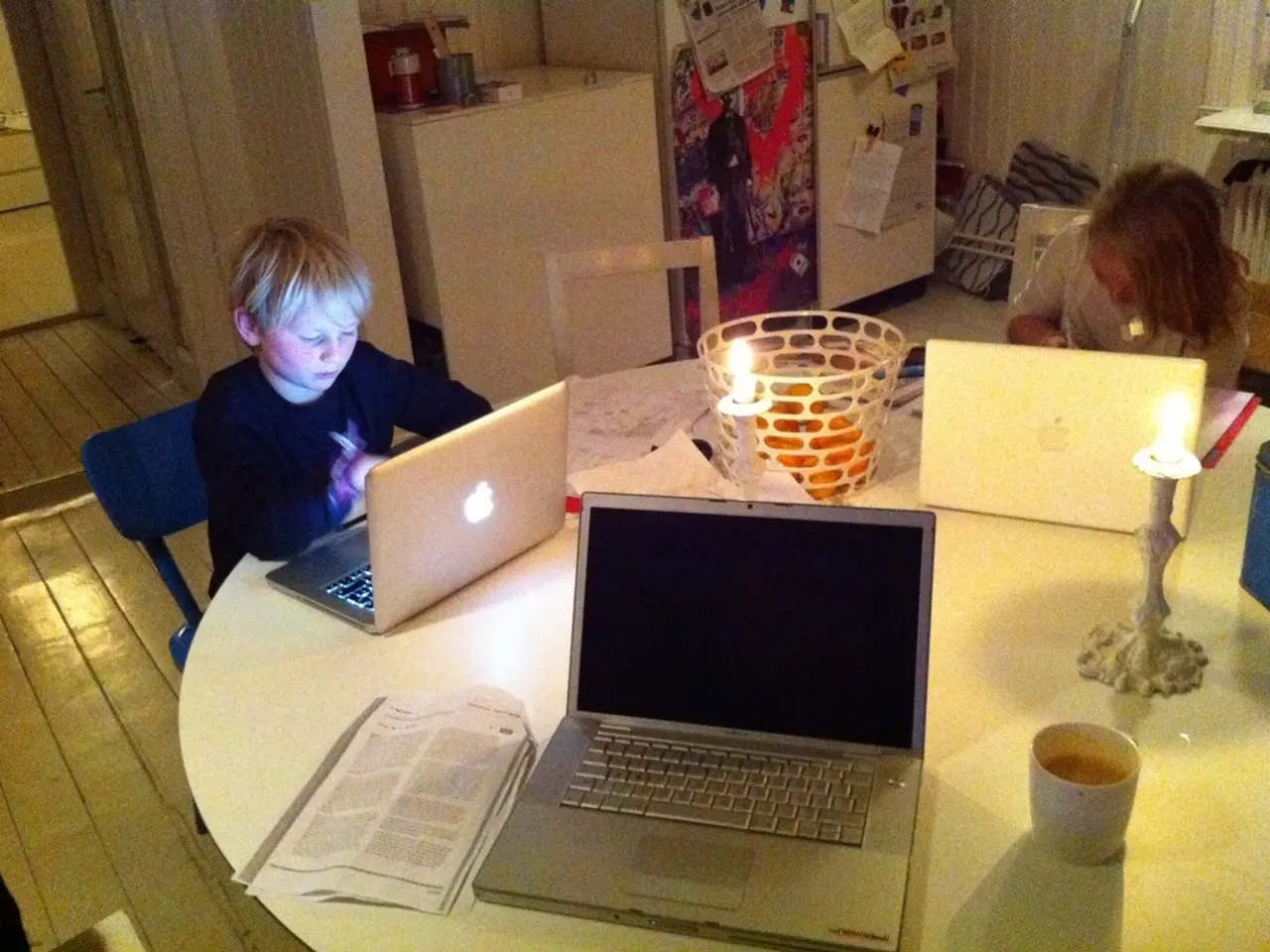Home Learning without Structure: A Parent's Manual for Child-Driven Education at Home
Unschooling, a unique form of homeschooling, is gaining popularity among parents who believe in fostering their child's natural curiosity and learning style. This educational approach, which originated from the ideas of teacher John Holt in 1977, is deeply rooted in the child's interests and personality.
Unschooling children often learn outdoors, exploring their surroundings and discovering local flora and fauna. For instance, cooking can serve as a practical learning experience, where children can develop skills in fractions, proportions, and reading from a recipe.
Unschooling parents create tailored learning strategies for their children. If your child hasn't started school, you can start unschooling once they reach school age. The learning journey is flexible, with plans developed in response to the child's interests, rather than following a predetermined course for the year.
Unschoolers are encouraged to pursue passionate interests for extended periods, unlike traditional schooling which discourages such focus. They learn organically through activities, interactions, and play, often using everyday tasks as learning opportunities. Traditional learning resources, such as textbooks and online classes, are used when children wish to delve deeper into a subject.
One key difference between unschooling and traditional schooling lies in their structures and curricula. Traditional schooling follows a fixed, structured curriculum with prescribed subjects, lessons, and schedules. On the other hand, unschooling abandons curricula, tests, and formal instruction entirely, relying on the child's interests and natural curiosity.
Unschooling also differs in its learning approach. Traditional schools emphasize adult-directed teaching, standardized assessments, and progression through grade levels. In contrast, unschooling trusts children as natural learners who self-direct their education through real-world experiences.
Another significant difference is the motivation and autonomy in learning. Traditional schools often use external motivations and evaluations like grades to drive learning, whereas unschooling relies on the child's intrinsic motivation, fostering autonomy and self-direction in learning decisions.
Unschooling also views life itself as the classroom, with continuous learning everywhere and no formal assessments. This approach fosters a sense of belonging and responsibility in the community, as unschooled children interact with it more frequently.
However, unschooling comes with its drawbacks. Without a structured curriculum, there may be potential gaps in knowledge across various areas. Success through unschooling is measured using the child's goals and passions as a yardstick, rather than common benchmarks.
If your child is still in school, you need to write a letter to the school principal expressing your intent to start homeschooling. Unschooling requires great parental commitment for facilitating learning. But for those committed, unschooling offers a unique opportunity to nurture a child's natural love for learning.
[1] Holt, J. (1977). How Children Fail. Penguin Books. [3] Griffin, P. (2018). Unschooled: Raising Curious, Well-Educated Children Inside the Radical Unschooling Movement. New Society Publishers. [5] Kunzman, R. (2012). Unschooling: Rethinking Education. Westview Press.
- Embracing a lifestyle that promotes a balance between learning and home-and-garden activities, parents who practice unschooling believe in blending education and self-development, allowing their children to cultivate their interests and learn in organic ways.
- A parenting approach founded on the principles of fostering a child's natural curiosity and learning style, unschooling encourages continuous learning through everyday tasks and experiences in the realm of home-and-garden, education-and-self-development, and even life itself.




